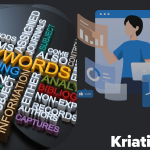Let me begin by wishing our readers a happy 75th Indian Independence Day. On this day, Let us remind ourselves of our ancestors' sacrifices and the pain and sufferings they endured to achieve Independence. Let us pay homage to the millions of freedom fighters who decided their lives were not worth more than India's freedom.
India is a land of 1.4 Billion human beings, A 3 trillion Dollar Economy - the 5th largest economy. India is poised to be a world leader in the next few years. The revolution of India from a poor, resource-deprived, dependent nation to a powerful, resourceful and self-dependent nation with solid roots in its culture has been set in motion. I cannot wait to see what India will be like in its' hundredth year of Independence.
As an Agile practitioner and a certified Product Owner and Manager, I firmly believe that Scrum implementation in the Governance and Governmental agencies can bring high-scale transformation and place hope and aspirations at the heart of its problem-solving process.
For those new to Scrum, here is an overview: Scrum is a lightweight framework that helps people, teams and organizations generate value through adaptive solutions for complex problems. Though originally intended for de-cluttering the global software industry, Scrum has proven to be an any-industry framework. Scrum employs iterative and incremental approaches to optimize predictability and control risk. Scrum is founded on empiricism and lean thinking. Empiricism asserts that knowledge comes from experience and decision-making based on what is observed.
Nation-building as an exercise is perhaps one of the most complex endeavours. An iterative and incremental approach can ensure structured yet flexible solutions to the significant and convoluted problems hindering the country's progress.
The three pillars of Scrum - Transparency, Inspection and Adaptation - will narrow the trust deficit between the legislative and the citizenry. By being transparent and allowing the citizenry to inspect, the legislative and the citizenry can adapt apt solutions.
A part of the legislature should adopt the product owner role - the true value maximizer. The citizens are the stakeholders and the beneficiary, and the product owner would consult the citizenry to know more about their problems and build the product backlog. Since the stakeholders are massive, the product owner can adapt to the common denomination rule. By having a clear and concise definition of done (DoD), the legislature can ensure quick and efficient value delivery to the citizenry.
The development team should consist of the government, the opposition and the executive - A perfect cross-functional team. Each Ministry could be viewed as an individual scrum team with a common product owner - the legislature.
The Judiciary can take on the role of a scrum master - educating and coaching the team on the aspects of Scrum events, artefacts and principles. And, in the process, helping the team achieve and deliver high-value increments.
The scrum team can achieve incremental and iterative progress by committing to time-boxed sprints. A mechanism can be implemented to invite the stakeholders (the citizens) to participate in the review. The scrum teams can deliver transformational shipments (in this case, service) by being Committed, Focussed, Open, Respectful and Courageous.
By being time-boxed, Sprint goals stay valid, decreasing the risk. The citizens have absolute visibility of the backlog, Work-In-Progress and completed tickets. A Plan-Do-Check-Act (PDCA) Cycle can ensure that every increment is available for the citizens to validate the value received.




